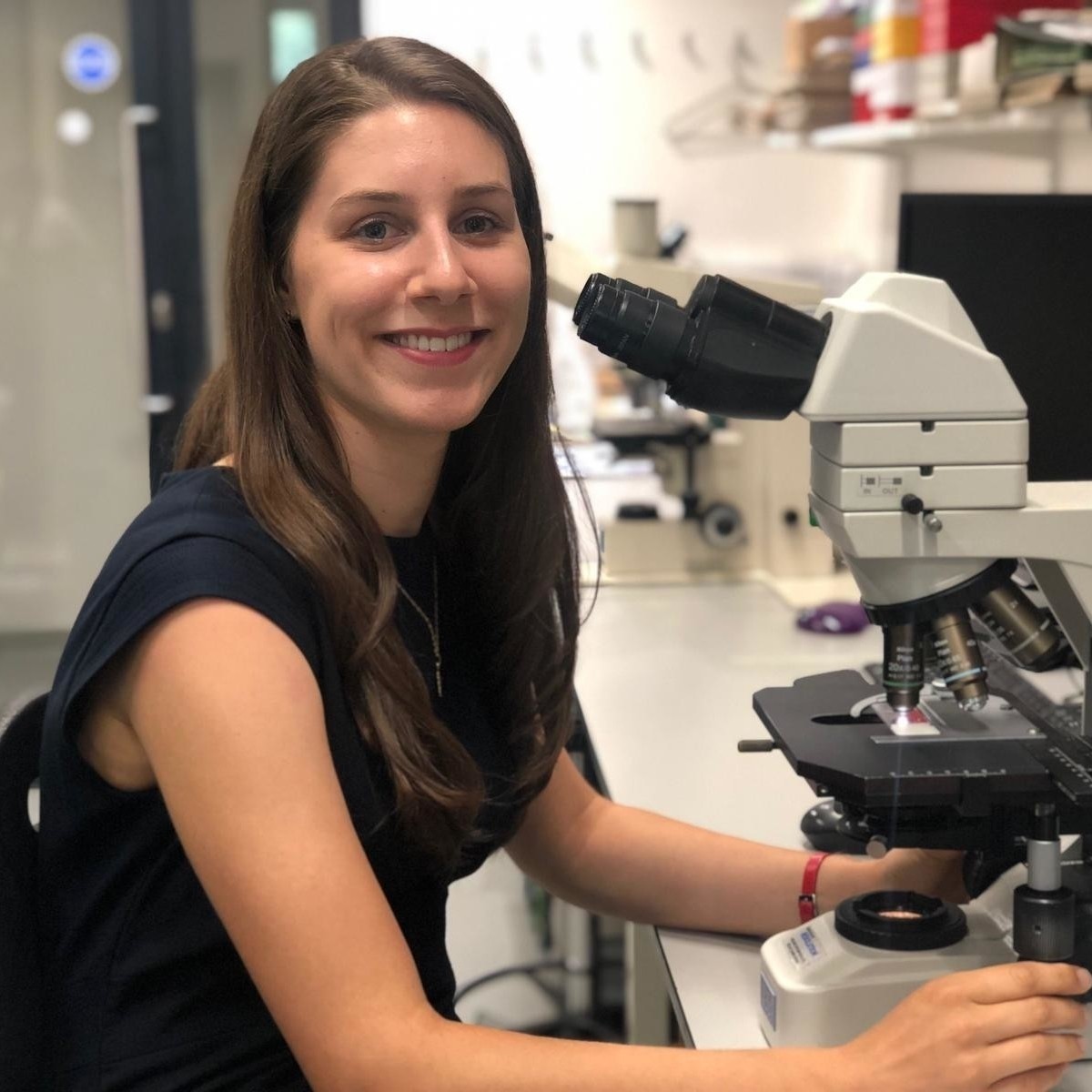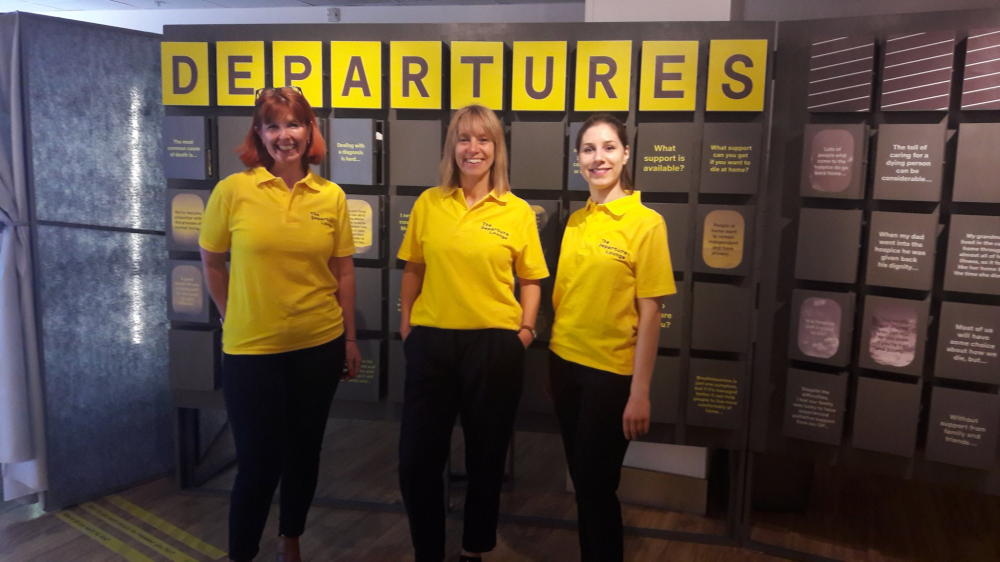
Name: Izabella Smolicz
Position: MB PhD Student
Institution: UCL Great Ormond Street Institute of Child Health
Connection to the Academy: INSPIRE participant (2014-16) and part of The Departure Lounge public engagement project (2019)
“INSPIRE allowed me to experience working in a lab for an extended period of time and learn core skills that I continue to refer to today.”
What first made you interested in INSPIRE?
A couple of months after commencing my undergraduate studies at the University of Bristol, I attended a showcase where medical students were presenting research from their recent INSPIRE Summer Studentships. I realised it was possible to be involved in research whilst studying medicine and this led me to organise my first research experience in summer 2014.
What did you do with INSPIRE?
I was an INSPIRE Ambassador at the University of Bristol for two years, promoting research and assembling research resources for medical students. In 2015, I undertook an INSPIRE Summer Studentship in vascular medicine, leading to my first presentation at a national conference. I also collaborated with students from other medical schools in the South West to evaluate the INSPIRE Research Taster Day Scheme for medical, dental and veterinary students. This work was presented as a poster at an international medical education conference highlighting that students are keen to engage with research. Finally, I enjoyed being a senior editor for the INSPIRE Student Health Sciences Research Journal during my intercalated BSc.
What did you learn?
Through INSPIRE, I gained a true insight into research from multiple angles. The Summer Studentship allowed me to experience working in a lab for an extended period of time and learn core skills that I continue to refer to today. I improved my presentation skills for different audiences and encountered a variety of research projects, allowing me to identify my own research interests further.
How did the Academy’s support help you continue your career?
The experience from the Summer Studentship encouraged me to pursue a lab project during my intercalated BSc. I felt I could integrate and learn new techniques more quickly within the different lab environments and work more independently.
Having enjoyed all the research projects I was involved in during the early years of medical school, I decided to apply for the MB PhD programme at UCL, which enables medical students to integrate a PhD within the medical degree. I transferred to UCL in 2016 and am now entering the final year of my PhD at UCL Great Ormond Street Institute of Child Health. My PhD is investigating the biology of paediatric brain tumours, with a focus on the unique insights that can be gained from clinical and molecular post-mortem investigations. Next year, I return to medical school to complete the final two years of medicine.
More recently, I was one of the Guides in The Departure Lounge at the Academy of Medical Sciences public engagement pop-up, which aimed to encourage members of the public to openly talk about death and dying. This unique experience allowed me to work with researchers, healthcare workers and other professionals with experience of death and dying and to be involved in research that will inform policy in end of life care.
Izabella (right) with two other Guides, Maria (left) and Lorraine (centre) on shift at The Departure Lounge pop-up in Lewisham
What’s your advice to other students thinking about a career in research?
I would recommend attending events such as local INSPIRE Showcases, medical student research evenings and academic seminars. This will allow you to not only hear about the different types of research and latest advancements, but also the experiences of researchers who are at various levels of training.
Also, try to gain some experience in an area that you find genuinely interesting and with a supervisor who is keen to support you. Even if the experience is not what you expect, do not become disheartened – there are plenty of other opportunities to explore!
Read more about Izabella's experiences on her previous blogs for the University of Bristol Medical School and the Sutton Trust, and find out more about her work on paediatric brain tumours on ResearchGate or by following her on Twitter.